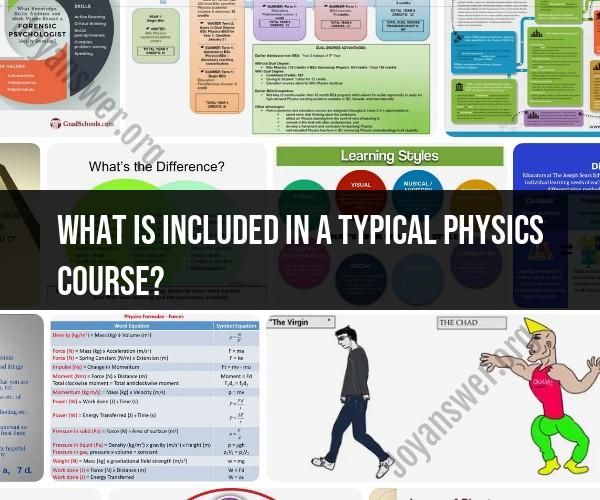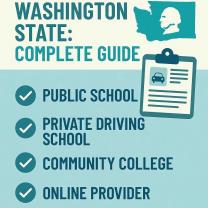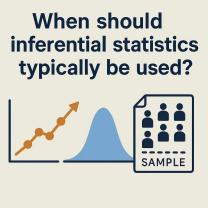What is included in a typical physics course?
A typical physics course covers a range of fundamental principles and topics in physics. The specific curriculum can vary depending on the level of the course (introductory, intermediate, or advanced) and whether it is a high school, undergraduate, or graduate-level course. However, here is an overview of the core topics and concepts that are commonly included in a typical physics course:
Classical Mechanics:
- Kinematics: Describing motion, including position, velocity, and acceleration.
- Newton's Laws of Motion: Explaining how forces affect the motion of objects.
- Energy and Work: Understanding the concepts of kinetic energy, potential energy, and the work-energy theorem.
- Conservation of Momentum: Examining the principles of linear and angular momentum.
- Gravitation: Exploring the laws of universal gravitation and the motion of celestial bodies.
Electromagnetism:
- Electric Fields and Forces: Studying electric charges, fields, and the effects of electric forces.
- Gauss's Law: Applying Gauss's law to analyze electric fields and charges.
- Electric Potential and Voltage: Understanding electric potential energy and voltage.
- Current and Resistance: Exploring electric current, Ohm's law, and electrical circuits.
- Magnetism and Electromagnetic Induction: Investigating magnetic fields, Faraday's law of electromagnetic induction, and electromagnetic waves.
Waves and Optics:
- Wave Properties: Examining the characteristics of waves, including amplitude, frequency, and wavelength.
- Sound Waves: Understanding the behavior of sound waves and their properties.
- Light Waves and Optics: Investigating the properties of light, reflection, refraction, lenses, and mirrors.
- Interference and Diffraction: Exploring wave interference and diffraction patterns.
Thermodynamics:
- Laws of Thermodynamics: Studying the four laws of thermodynamics, including concepts of energy, heat, and work.
- Thermodynamic Processes: Analyzing isothermal, adiabatic, and other thermodynamic processes.
- Entropy and the Second Law: Understanding entropy and its role in thermodynamic systems.
Modern Physics:
- Special Relativity: Examining Einstein's theory of special relativity and its implications for space, time, and energy.
- Quantum Mechanics: Introducing the principles of quantum mechanics, including wave-particle duality and quantum states.
- Atomic and Nuclear Physics: Investigating atomic structure, radioactivity, and nuclear reactions.
- Particle Physics: Exploring elementary particles and the standard model of particle physics.
Additional Topics (Depending on Course Level):
- Fluid Mechanics
- Oscillations and Waves
- Electric Circuits and Electronics
- Optics and Wave Optics
- Classical and Quantum Mechanics
- Thermodynamics and Statistical Mechanics
- Astrophysics and Cosmology
The curriculum of a physics course typically progresses from classical physics to more advanced topics, building upon fundamental principles and mathematical concepts. Laboratory work and experiments are often an integral part of physics courses, allowing students to apply theoretical knowledge to practical situations and develop problem-solving skills.
Keep in mind that the specific content and order of topics may vary from one institution or course to another, but the core principles and concepts of physics remain consistent across most physics curricula.













